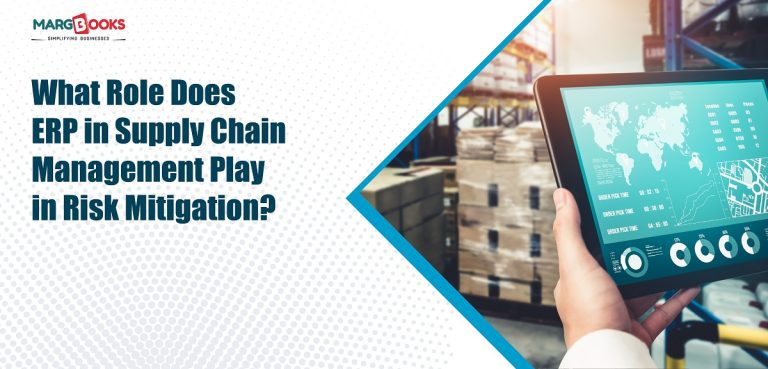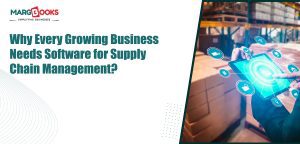The organizations must manage increasingly complex supply chains while maintaining operational efficiency, cost-effectiveness, and responsiveness to market demands. Our supply chain ERP systems (Enterprise Resource Planning) have emerged as a powerful solution to address these challenges.
These integrated systems streamline every aspect of the supply chain, from procurement. These also include inventory management to logistics, and demand forecasting into a unified platform.
Let’s explore how supply chain ERP systems are reshaping the future of business operations and why adopting one can be a game-changer for your organization.
What are Supply Chain ERP Systems?
A Supply Chain ERP system is an integrated platform that manages end-to-end supply chain activities, including procurement, manufacturing, inventory management, warehouse operations, logistics, and customer service. Unlike stand-alone tools, ERP systems consolidate data from multiple departments and enable real-time collaboration across all touchpoints of the supply chain.
This centralized approach allows businesses to anticipate demand, optimize resource allocation, and respond quickly to changes in market conditions.
Key Features of Supply Chain ERP Systems
1. Real-Time Inventory Tracking
With ERP integration, businesses can monitor inventory levels in real time, preventing stockouts or overstocking. This not only saves costs but also ensures timely deliveries.
2. Automated Procurement Processes
ERP software automates purchase order generation, vendor selection, and invoice processing. This leads to reduced manual errors and faster procurement cycles.
3. Demand Forecasting
Advanced ERP systems use historical data and market trends to forecast demand accurately, enabling better planning and reduced excess inventory.
4. Logistics and Transportation Management
From shipment tracking to route optimization, ERP software helps manage logistics efficiently, reducing delivery times and costs.
5. Integrated Financial Management
Supply Chain ERP platforms often come with built-in or compatible Accounting software that simplifies financial reporting, budgeting, and cost analysis.
Benefits of Implementing ERP in Supply Chain Management
1. Improved Decision-Making
A key advantage of ERP systems is the availability of real-time data and analytics. Businesses can gain deep insights into supplier performance, production efficiency, and customer demand. This data-driven approach empowers companies to make informed decisions and quickly adapt to changing conditions.
2. Improved Visibility and Transparency
With ERP integration, every stakeholder has access to a unified system, improving transparency across departments. This ensures everyone, from procurement to sales, is aligned with business goals and timelines.
3. Increased Operational Efficiency
By automating repetitive tasks and eliminating data silos, ERP systems significantly increase operational efficiency. Processes that once took days can now be completed in hours or minutes.
4. Better Customer Satisfaction
A streamlined supply chain means faster deliveries, accurate order fulfillment, and fewer errors. All of this translates into improved customer satisfaction, a key driver of business growth.
Integration with Online Billing & Accounting Software
The effectiveness of Supply Chain ERP Systems is amplified when integrated with other digital tools like online billing software. Automated billing not only accelerates the payment process but also reduces errors, making the entire transaction flow seamless from purchase to invoicing.
Connecting ERP ensures that every financial transaction, be it vendor payment, customer receipt, or inventory valuation, is accurately recorded. This integration provides a real-time overview of financial health, helping in budgeting and compliance.
Choosing the Right Supply Chain ERP System
Not all ERP systems are created equal. When choosing one, businesses should look for:
- Scalability to support growth
- Cloud-based access for real-time collaboration
- User-friendly dashboards and customizable reports
- Integration capabilities with third-party apps
- Strong data security and compliance features
It’s also wise to choose a vendor that offers continuous support and regular software updates, ensuring that your system evolves with the latest technology trends.
Conclusion
A well-implemented Supply Chain ERP system is more than just a technology upgrade; it’s a strategic investment. It aligns every element of your supply chain, increases efficiency, reduces costs, and improves customer satisfaction.
Incorporating essential software like billing software into your ERP framework adds even more value, offering a holistic view of your business operations.
Whether you’re a manufacturer, distributor, or retailer, it’s time to move beyond spreadsheets and disconnected tools. Embrace a modern ERP solution tailored to your supply chain needs and drive your business toward scalable, sustainable growth.


